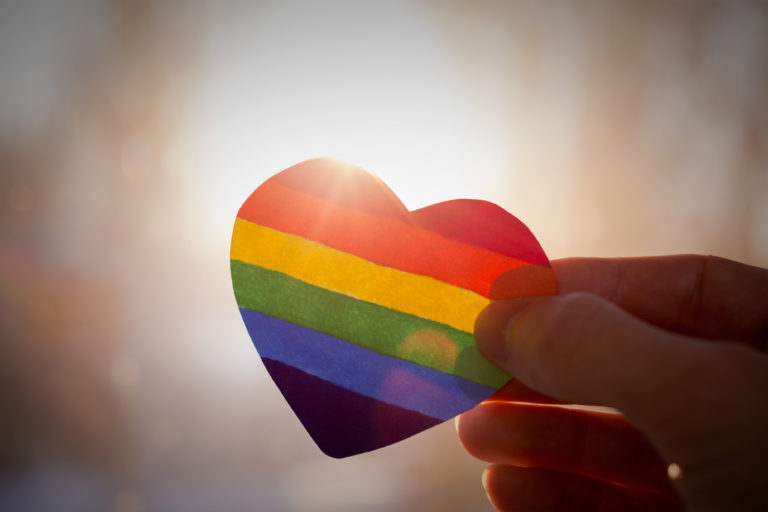

SALT LAKE CITY — A growing number of Americans are starting to publically identify as LGBTQ+. A recent Gallup poll found a 5.6% increase in those who subscribe as lesbian, gay, bisexual or transgender. That is percentage is up 4.5% from when the last poll was conducted in 2017.
The Gallup poll also discovered younger generations primarily make up the LGBTQ+ spike. About 15.9% of people born between 1997-2002 (also referred to as Generation Z) identify as a member of the LGBTQ+ community.
Despite the increase in LGBTQ+ folks, mental health issues remain prevalent, especially among young populations.
Dr. CJ Powers, the director of Psychology Training at Huntsman Mental Health Institute, joined Debbie Dujanovic and guest host Ethan Millard, also a host of the KSL Nightside Project, to discuss mental health, suicide and LGBTQ+ youth in Utah.
Sexual identity
As more young adults begin to realize their sexual orientation, parents are a vital part of ensuring their kids feel accepted and seen.
“I want to talk about the mental health component,” Debbie said. “When it comes to our kids and those who are gay, and still keeping it a secret, give us a picture of what is it doing to them. If they don’t feel like they can tell Mom and Dad? If they don’t feel feel like they can tell a friend?”
And the problem is more common than expected.
“It’s really tough,” Dr. Powers said. “Our sexual identity is a core part of our identity. And so, when kids are struggling to come out or live congruently with what they’re feeling inside, it creates a tremendous amount of stress. And then if they haven’t come out to their friends, there’s no place for that, for them to get support.”
Suicide
Suicide is the second leading cause of death among LGBTQ+ youth ages 10-24, according to the Trevor Project. In Utah, LGBTQ+ youth are 8.5 times more likely to attempt suicide if their parents reject their identity.
“We know that suicide is a big problem among youth in this state. Do we have any data, or are you able to kind of detect how many of those suicides are directly related to this dynamic of being young, in Utah being gay and feeling like you have no real future,” explained Dr. Powers.
“Youth who are with a minority sexual identity and feel rejected in that identity have about an eight to 10 times higher rate of attempted suicides — similar in terms of rates of depression and substance abuse. Just risky behaviors, generally.”
Talking to your LGBTQ+ child
Navigating the conversations with LGBTQ+ can be difficult. But having those crucial conversations can be critical to their mental health and stability.
“What advice would you give a parent — and let’s say it’s a parent who’s always viewed the gay community with hostility and suspicion, generally anti- in their overviews. They discover that they have a child who’s gay. What do they need to think about right now?” Ethan asked.
“When I work with families who are struggling to come to terms with their child coming out,” Dr. Powers said, “it is not the parents — it’s not that they don’t love their son or their daughter, they love them very much.
“Often it’s kind of fear or grief: ‘We thought they’re gonna have children and all these other things or it conflicts with our religious beliefs and what we’ve been told is right. So it’s often not a lacking in love, it’s lacking in early understanding.
“I think helping those families through that, making sure that they are communicating to their child — ‘Hey, we’re struggling with this, and we love you’ — so they don’t have to just embrace it if it’s not genuine, but then do the work to learn to truly educate yourself,” Dr. Powers said.
‘Are you gay?’
“Dr. Powers, I’m gonna ask you something,” Debbie said. “Occasionally, I’m known for being blunt. Is it OK as a parent to sit your child down and just point-blank ask them, ‘Are you gay?’ Is that the way to go about it?”
“I would generally discourage that,” Dr. Powers said. “Well, it depends on the parents’ intention, but I think often the child is going to feel very put on the spot if they’re not ready to share that. It would feel very threatening.”
“How do we ask the question so we can make sure our kids know we love them?” Debbie asked.
“I think that the best thing to do if you’re suspecting is demonstrate that you are either affirmative toward your own beliefs about homosexuality or you’re willing to look into it and get yourself educated about it,” Dr. Powers said. “You’re showing them, hey, if you are gay, I’m going to love you and accept you anyway . . . creating a safe space where they can come out.
“When they’re ready to, they will or maybe they’re still figuring it out themselves. Some people kind of know pretty early on, they’re gay; other people, it takes a while,” he said.
Dave & Dujanovic can be heard weekdays from 9 a.m. to noon. on KSL NewsRadio. Users can find the show on the KSL NewsRadio website and app, a.s well as Apple Podcasts and Google Play.